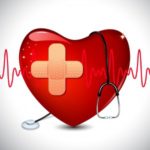Heart Health – Recognizing a heart attack and calling 911
by: Michael A. Loiz, Director of EMS
This past year, Stratford EMS responded to 464,911 calls for chest pain and about 75 calls for cardiac arrest. It is important to recognize the signs and symptoms of heart attack early and to call 911 immediately when you identify a heart attack. This can help reduce the incidences of cardiac arrest in Stratford.
Signs and symptoms
- Chest discomfort or pain may feel like a tight ache, pressure, fullness or squeezing in your chest lasting more than a few minutes. This discomfort may come and go.
- Upper body pain or discomfort may spread beyond your chest to your shoulders, arms, back, neck, teeth or jaw. You may have upper body pain with no chest discomfort.
- Stomach pain may extend downward into your abdominal area and may feel like heartburn.
- Shortness of breath — You may pant for breath or try to take in deep breaths. This often occurs before you develop chest discomfort, or you may not experience any chest discomfort.
- Anxiety — You may feel a sense of doom or feel as if you’re having a panic attack for no apparent reason.
- Lightheadedness — You may feel dizzy or feel like you might pass out.
- Skin Color Change and Sweating — You may suddenly break into a sweat with cold, clammy skin. Your skin color may appear pale, or gray
- Nausea and vomiting — You may feel sick to your stomach or vomit.
When you call 911, be prepared to answer the dispatcher’s questions about how alert the patient is, how well they are breathing, if they are changing color or are clammy (cold sweats), and if they have ever had a heart attack before. The dispatcher will also ask if the patient has taken any medications or drugs in the past 12 hours.
These important questions help EMS prepare and plan for what treatments are appropriate for the patient and also provide valuable insight for the receiving hospital so that they can also prepare for the patients arrival. Help us create a healthier Stratford by becoming more aware of heart attack signs and symptoms.
For more information visit: stratfordems.org



